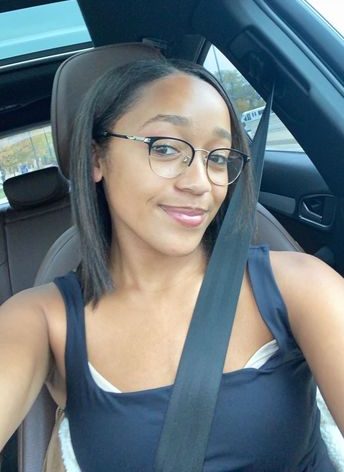Black History Month 2022 Spotlight – Sidney Hollis ’23
Junior Sidney Hollis discusses being POC, her favorite black figures, and racism at NT

Hollis
At New Trier, Hollis is a member of the Racial Affinity Coalition and a rower
New Trier is celebrating Black History Month by recognizing the contributions and influence of African Americans to the culture, achievements, and history of the United States. In this series, the New Trier News shines a spotlight on black students who enrich the culture of the school.
On being a person of color (POC) at New Trier, Junior Sidney Hollis said, “There’s not much of a community for me. There is the Racial Affinity Coalition that exists, but you have to miss class to go to that, and that’s not really an option for me. It is like I’m living with white people, because unless I go out of my way, I can’t interact with [other POC students].”
Apart from being involved with the Racial Affinity Coalition, Hollis also rows on the Girls Varsity Rowing Team.
Before moving to the Township, Hollis lived in California’s Bay Area, where there was a larger black community.
“When we were moving to Illinois, my parents tried to find an area with some sort of diversity, which didn’t end up happening. What we value more is education over diversity.”
Still, she has found community in nearby areas where she can keep in touch with her identity.
“I’m involved with other black institutions outside of school, and I’m aware of who I am and my identity.”
When discussing African American history in middle school classes, Hollis says blatant staring from classmates would make her uncomfortable. However, she feels more respected in high school classes, where students are more mature.
“Now that I’m taking higher-level classes like AP US History, the kids are more sensitive to the topics, so everyone’s been very respectful.”
Though the quality of in-class discussions has improved, she has not been able to escape racist insults in the halls of New Trier.
“I’ve been told that I’m the whitest black person someone has ever met. It’s just awful. It was freshman year when I was told this, when I was a little bit less in touch with who I am, and I didn’t realize that they were referring to the way I dress, the way I wear my hair, and the way I talk, like they expect me to talk a way that I didn’t,” she said. “When I think about that now, people don’t realize how harmful questions like that can be. Asking any person of any race a stereotype, that’s just damaging.”
Beyond microaggressions, Hollis says there also have been “major bumps” at times.
“Freshman year, I got into an argument with a group of white boys about the existence of white privilege, because they vehemently argued that it didn’t exist, and it got really out of hand. It ended with them making a picture of me, stomping on it, and surrounding it with guns, and the principal had to get involved.”
Hollis says she learned to be less expressive with her opinions to avoid conflict.
“It encouraged me to not speak out anymore, even though I felt like I was the only person that would speak out, because I’m one of the few people who are eligible to when it comes to black issues.”
Her favorite black figures include Martin Luther King Jr. and Chadwick Boseman. But Hollis says her biggest inspiration is Alisha Keys.
“She is such a powerful woman in her voice and her lyrics, and the way that she is unapologetically black, and just the way that she preaches equality for everyone and peace.
Overall, Hollis considers her experience as a student at New Trier positive, though there are lows.
“Most of the time, I don’t even recognize that I’m a minority until situations come up where it’s like, ‘Yeah, I’m the only black person here.’ You don’t realize you’re alone until some odd situation comes up.”





































